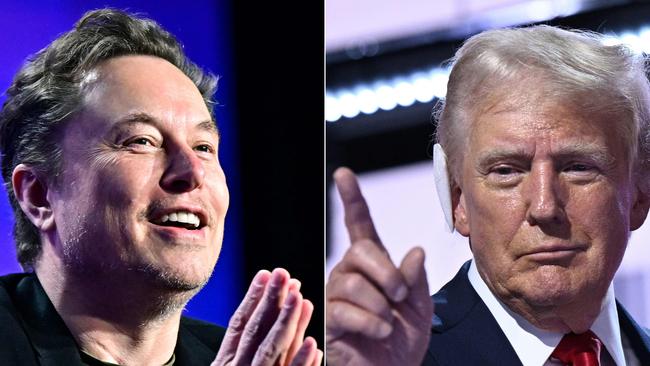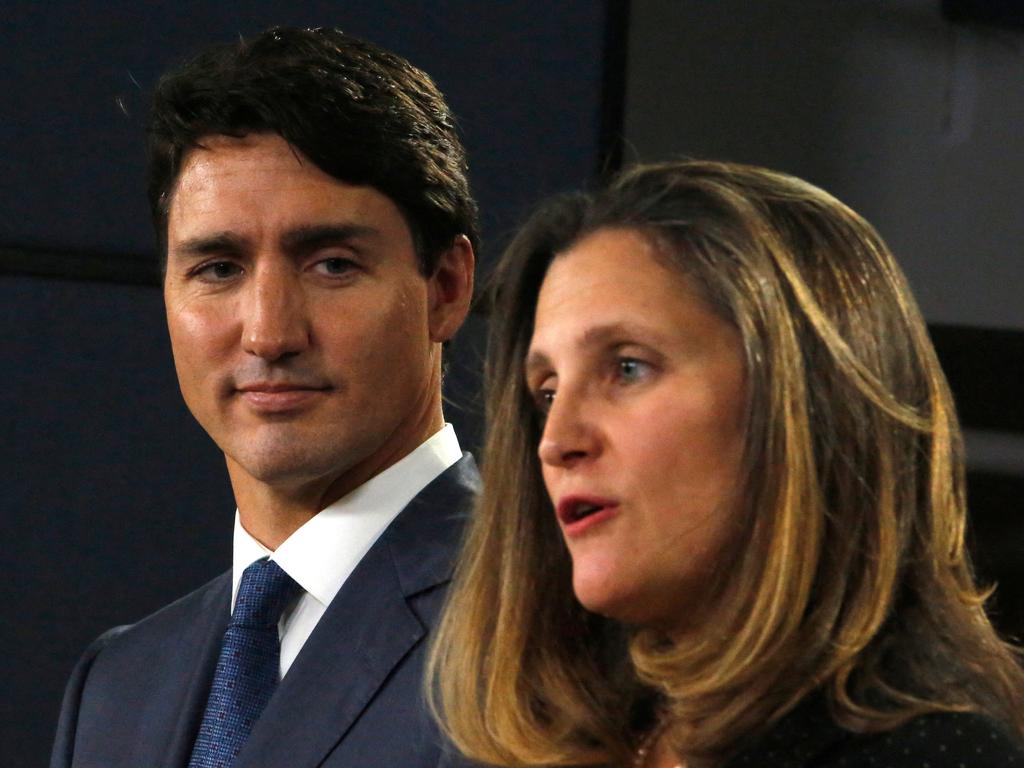Elon Musk draws first blood with spending bill bombshell
With an early morning social-media post on Wednesday, Elon Musk declared that a must-do spending bill ‘should not pass’. By early evening, the bill was dead. Those who doubt his ability to shake up Washington are having second thoughts.

With a 4.15am ET social-media post on Wednesday (local time), Elon Musk declared that a must-do spending bill “should not pass.” By early evening, the bill was dead, leaving the government barrelling toward a weekend shutdown just before Christmas. Lawmakers who might have underestimated Mr Musk’s ability to shake up Washington were suddenly having second thoughts.
Over the course of Wednesday, Mr Musk pressed for Congress to kill the bill. He encouraged his more than 200 million followers on X, the social-media platform that he owns, to call their representatives to vote against it, and he warned that Republicans who voted for it should lose their congressional seats in two years. He also said Congress shouldn’t pass any more legislation until President-elect Donald Trump takes office, which would ensure a partial government shutdown until Jan. 20.
“Stop the steal of your tax dollars!” he posted on X. “Call your elected representatives now. They are trying to railroad this thing through today!” The full force of Mr Musk’s pressure campaign was on display all day Wednesday before Mr Trump weighed in to oppose the bipartisan deal struck by congressional leaders, underscoring that Mr Musk’s influence on government spending and policy appeared to be much greater than initially envisioned.
Mr Musk suggested that this effort could be just the beginning of an activist role he will play as co-chair of the Department of Government Efficiency, which is a new advisory body created by Mr Trump. Mr Musk has made it clear that he will take on anyone in Washington he believes doesn’t do enough to cut spending, even if that means confronting Republicans.
Thank you! https://t.co/wRIwlYBTvt
— Elon Musk (@elonmusk) December 18, 2024
“Unless @DOGE ends the careers of deceitful, pork-barrel politicians, the waste and corruption will never stop,” Mr Musk wrote on X. “Therefore, there is no choice but to do so. I wish there was another way, but there is not.” Mr Musk, the world’s richest man and chief executive of Tesla and SpaceX, and his DOGE co-chair, Vivek Ramaswamy, a biotech-company founder and 2024 Republican presidential candidate, said the funding deal negotiated by House Speaker Mike Johnson (R., La.) contains excessive spending and special-interest projects.
Taken together, Mr Musk and Mr Ramaswamy’s fight over the spending bill serves as an early warning sign for congressional Republicans: Get on board or else.
“Our constituents, the people who elected us, are listening to Elon Musk, ” said Rep. Andy Barr (R., Ky.). “My phone was ringing off the hook today.” Rep. Robert Aderholt (R., Ala.) said, “We are not wanting to burn bridges before the administration comes in.” He said of Mr Musk, “We need to hear what he’s saying.” Sen. Rand Paul (R., Ky.), floated the idea of installing Mr Musk as speaker of the House, as the Constitution doesn’t require that the post be held by an elected official.
First of all, I’m not the author of this proposal. Credit to @realDonaldTrump, @JDVance & @SpeakerJohnson.
— Elon Musk (@elonmusk) December 19, 2024
Second, this is a MUCH better bill that is closer to being a real continuing resolution (not an omnibus masquerading as a CR), but with support for hurricane victims &… https://t.co/AJTI6BTFdr
Democrats criticised Republicans for scrapping the bipartisan agreement and paving the way for a possible shutdown. Rep. Gwen Moore (D., Wis.) said in a post on X, “Remind me who elected Elon Musk.” Later, when it was clear the funding bill was in trouble, she added, “Once again Republicans – at the behest of Donald Trump and his billionaires club – have the U.S. on the brink of a shutdown.
Democrats tried to get under Mr Trump’s skin by saying Mr Musk was really in charge. “Shadow President Elon Musk … succeeded in killing the bill, and then Trump decided to follow his lead,” said Rep. Pramila Jayapal (D., Wash.), a leading progressive, on X.
“President Musk made it clear … that he doesn’t want Republicans to pass this,” said former Rep. Adam Kinzinger (R., Ill.) on CNN. “And seemingly, Vice President Trump kind of backed him up then at that point.” The opposition to the bill from the co-heads of DOGE comes as House lawmakers have begun organising plans to work with the advisory body, which aims to cut $2 trillion in federal spending, a task that would represent roughly 30% of the federal budget, while slashing regulations and the federal workforce.
This shows how much your voice matters!
— Elon Musk (@elonmusk) December 19, 2024
And having a President like @realDonaldTrump means that your voice is finally heard. https://t.co/0a7QDJx9zt
The dust-up over the spending legislation shows how differently DOGE might function compared with past efforts to control government spending.
President Barack Obama had the Simpson-Bowles commission on deficit reduction and used his 2012 State of the Union address to push for reorganising the federal government. During the Clinton administration, Vice President Al Gore led the National Partnership for Reinventing Government, a five-year effort that consolidated federal agencies and reduced the federal workforce.
While those efforts were marked by lengthy study and recommendations to Congress, Mr Musk and Mr Mr Ramaswamy have been posting their objections to many government programs and spending in real time. And back then, members of Congress didn’t face overt threats of primary challenges, a dilemma for congressional Republicans given Mr Musk’s $400-billion-plus fortune and his expenditure of more than $200 million to elect Mr Trump during the 2024 election.
"ALL FEDERAL SPENDING IS TAXATION."
— Tesla Owners Silicon Valley (@teslaownersSV) December 19, 2024
Elon Musk pic.twitter.com/yUNsqgVjbL
Maya MacGuineas, president of the bipartisan Committee for a Responsible Federal Budget, said it wasn’t difficult to see why Mr Musk and Mr Ramaswamy would object to the spending proposal, saying it “circumvents the very principles of how we are supposed to govern, and I suspect most anyone would have to acknowledge it is a truly crummy bill.” She added: “However, it may also prove to be true that the more they weigh in on the day-to-day political skirmishes, as expansive as they might be, the less effective they will be in getting their larger changes through an already-polarised Congress.” Even before the fight over the stopgap spending bill, DOGE officials expressed private concerns about whether lawmakers would “be able to walk the walk” when it comes to cutting spending in their home states. “That is the biggest roadblock,” said one person familiar with the initial discussions.
Alex Nowrasteh, vice president for economic and social-policy studies at the Cato Institute, a libertarian think tank, said: “Most of the spending, the vast, vast majority, is not waste, fraud or abuse. So you’re going to have to actually make real cuts to programs that a lot of people like if you want to get to this $2 trillion number that they keep talking about.” On Tuesday, House lawmakers held their first meeting of the DOGE caucus, which plans to work closely with the incoming Trump administration to identify potential cuts and government changes.
Lawmakers said at the start of the meeting that they wouldn’t seek cuts to Medicare and Social Security benefits, according to attendees, and spent most of their time discussing a road map for achieving savings.
House members discussed creating a “DOGE score” for potential targets that would assess whether to cut or reduce federal programs based on ease and impact. An overview of the scoring system distributed to members described as “quick wins” initiatives that are “easy to implement and will have a high impact,” compared with “lower priority” ideas that would be difficult to carry out and aren’t expected to be hard-hitting.
Dow Jones





To join the conversation, please log in. Don't have an account? Register
Join the conversation, you are commenting as Logout